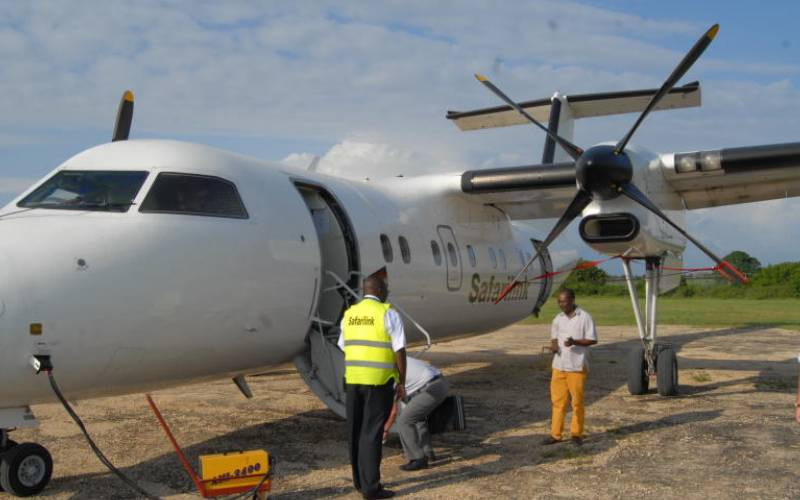×
The Standard e-Paper
Kenya’s Boldest Voice

Safarilink Aviation has partnered with an American company to have a fully electric fleet by 2027. The conversion will be spearheaded by Surf Air Mobility in conjunction with Cessna Grand Caravan maker, Textron.
The announcement was made by Safarilink CEO Alex Avedi during the company's 20th anniversary last week.